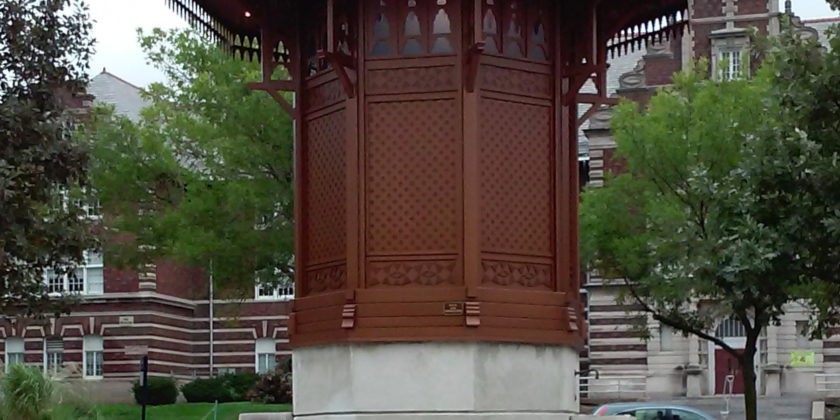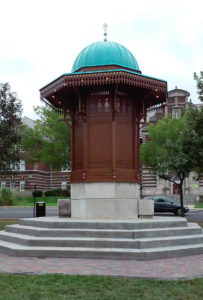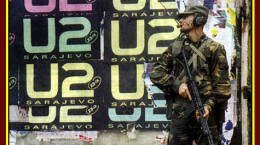A replica of the Sebilj Fountain (originally constructed in Sarajevo)
in the Bevo Mill neighborhood of St. Louis
It is no secret that there is an anti-immigrant sentiment in the United States. Indeed, it seems that for many years Americans have been hesitant to accept foreigners, and while there are many reasons for this, one of the most prominent is economic fear. The thought behind this is something along the lines of “they’ll steal our jobs and ruin our economy.” Compounded by the fact that many immigrants come from countries that are perceived to be impoverished, some Americans are worried that immigrants will bring the same economic philosophies and work ethics to the United States which ruined their home countries in the first place.
This second point finds a voice in the idea of “shithole” countries and desirable countries. According to an article in the Washington Post, “Trump Derides Protections for Immigrants from ‘shithole’ Countries,” this categorization was propounded by United States President Donald Trump, but is nevertheless in existence regardless of who first thought of it. It essentially claims that all foreign countries fall into two categories: impoverished ones, such as Haiti and El Salvador, and well-off ones such as Norway and Asian countries. The idea is that by making this distinction when legislating immigration policy, America will be able to weed out the weaklings and become the strongest country it can be, a reasonable paradigm despite its vulgarity.
The problem is that historically, the assumption that these immigrants from “shithole” countries will wreak havoc on American prosperity has been the opposite of reality. Immigrants have actually contributed to the growth of this country and they have created more jobs for us. One example of this is the Bosnians who immigrated to the United States during and after the war in the 1990s, the largest number of them located in Saint Louis. According to a study published by Saint Louis University, “The Economic Impact of Immigration in St. Louis,” they revitalized parts of South St. Louis City and South St. Louis County… and continue to be a key source of high skilled production work.” This area, informally known as “Little Bosnia”, is a respected community and has even become the title of a locally performed play by Christina Pipa.
While the economic and social achievements of the Bosnian community are noteworthy, a surprising detail about Bosnian immigration is that Bosnia is not in great shape economically. In an article on this topic, “Mass Depopulation Threatens Bosnia’s Future,” the website Balkan Insight mentions that although it is hard to come up with exact numbers because of the Bosnian War, it is well known that many Bosnians have left the country due to discontent over economic issues, among other things. And where have these Bosnians settled? The United States.
So we have a group of very poor people from a very poor, war-torn country who have settled in the U.S. and thrived. This example alone shows that the generalization that all immigrants that come from impoverished nations will plague society holds no water. If Bosnians were able to come from their broken country and make beautiful lives for themselves in America, who’s to say that other immigrants won’t do the same? Indeed, it is not uncommon for immigrants to work hard; they’ve seen what poverty looks like and they no longer want any part in it.
Bosnians have also adapted some American values, most notably perseverance. They left behind their country so their families could have a better life, learning English in order to interact with others and establish their businesses. And not only does this perseverance help when they come to the United States; it is largely responsible for their leaving Bosnia in the first place. As a result, it won’t be easy to stop immigration; they’re going to keep coming and working. But considering the facts, it would be foolish to want anything other than the continued growth of the immigrant community, which strengthens American values and the economy.




